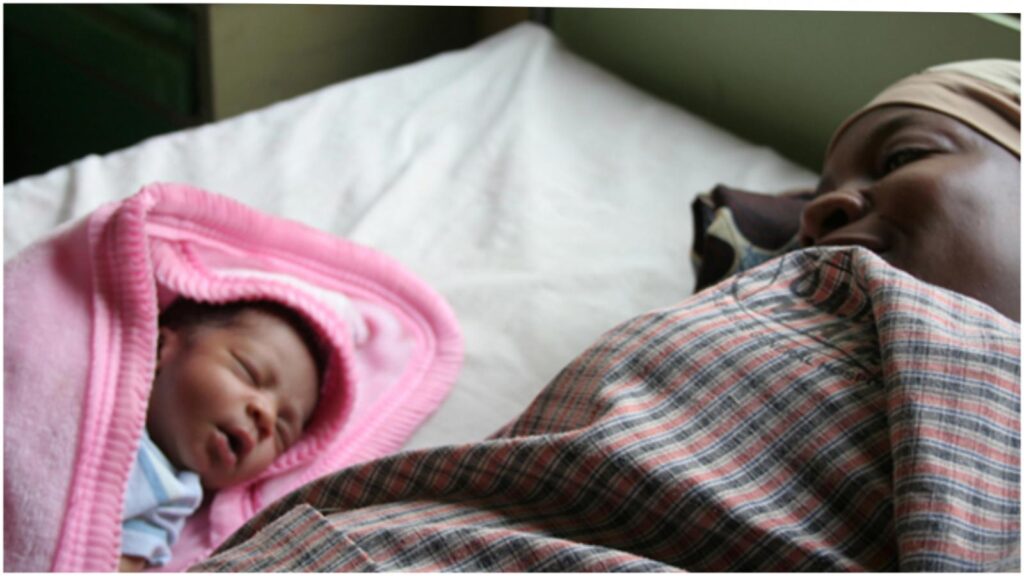
Stakeholders in Nigeria’s health sector are advocating for the integration of technology to significantly improve maternal and child health outcomes and reduce mortality rates.
They believe that leveraging technology will enhance the overall efficiency and effectiveness of healthcare services. This call to action was made during the second panel discussion at the 2024 Maternal Health Policy Dialogue, themed “Scaling Maternal Health Innovations in Nigeria,” organised by Nigeria Health Watch in Abuja.
Maternal mortality remains a critical issue in Nigeria, which ranks second globally in maternal deaths, according to a 2023 WHO report. This alarming statistic underscores the significant gap between Nigeria’s current health outcomes and the Sustainable Development Goals (SDG) target of fewer than 70 maternal deaths per 100,000 live births. Systemic barriers such as poor access to healthcare services, financial constraints, and inadequate transportation infrastructure contribute to delays in seeking maternal healthcare, exacerbating the crisis.
However, innovative approaches in digital health, telehealth, and evidence-based interventions like E-MOTIVE, a postpartum hemorrhage management bundle, offer promising solutions. Senior programme and advocacy manager at nigeria health watch, Ms. Onyedikachi Ewe emphasised that the panel explored various digital solutions aimed at scaling up digital health and data solutions within Nigeria’s healthcare system to improve maternal health.
“Digital health innovations are playing a crucial role in revolutionizing global healthcare, particularly in countries like Nigeria. These innovations range from providing remote access to healthcare information and resources for expectant mothers to tracking prenatal visits and vaccinations,” Ewe said.
Country director of Foundation PharmAccess Nigeria, Mrs. Njide Ndili highlighted the importance of identifying priority areas for impactful interventions at both the patient and provider levels. She stressed that ensuring patients receive the care they need and adequately equipping providers would address individual, sectoral, and institutional challenges. Leveraging existing frameworks and innovations could enhance the capacity to provide comprehensive maternal healthcare in the country.
Associate manager at mDoc Healthcare, Ms. Chiagozie Abiakam discussed how the organisation uses artificial intelligence (AI) to build capacity and ensure women receive high-quality care. She emphasised that enhancing the capacity of health systems empowers them to deliver proper maternal healthcare, addressing both immediate and long-term needs. This approach not only improves patient outcomes but also strengthens the overall health infrastructure, fostering sustainable and impactful changes in maternal health.
Financial constraints and misconceptions about vaccines are significant barriers preventing many mothers from taking their children for immunization, according to the senior associate at HelpMum, Ms. Arit Edem. Edem highlighted the financial support provided by HelpMum to alleviate the economic burden on families, making it easier for them to access immunisation services. HelpMum also educates mothers by providing clear, accurate information to encourage vaccination.
Customer Success Lead at Nivi Inc, Mr. Daniel Momoh disclosed that Nivi Nigeria effectively uses digital health solutions to monitor interactions between women and their healthcare providers. Momoh pointed out that digital tools provide patients with more options, making their interactions with healthcare providers more dynamic and interactive. This approach not only improves patient satisfaction but also fosters a more responsive and patient-centered healthcare environment.
Managing director of Nigeria Health Watch, Mrs. Vivianne Ihekweazu emphasised the urgent need for comprehensive interventions and the potential of digital health innovations to transform maternal and child healthcare in the country. She stated that leveraging technology could create sustainable and impactful changes that would benefit mothers and children across Nigeria.
“Access to quality maternal healthcare should not be a privilege; it is a right, and every woman should have this access, irrespective of where she is,” Ihekweazu said. “The degree of care and attention a country devotes to maternal health, such as safeguarding women’s health and well-being throughout pregnancy, delivery, and the postpartum period, often demonstrates how much it values its people.”
Nigeria Health Watch aims to increase awareness about successful maternal health innovations like the E-MOTIVE bundle of care, identify policy recommendations, and strengthen stakeholder collaboration. By fostering a collaborative environment and leveraging technology, Nigeria can make significant strides in improving maternal and child health outcomes, ensuring that every woman receives the care she deserves.

